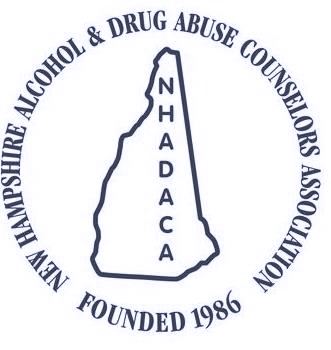Prevention Webinars
Webinars are free for anyone to participate without a certificate.
NHADACA MEMBERS:
Free upon successful completion of quiz and webinar evaluation.
NON-MEMBERS:
$15 upon successful completion of quiz and webinar evaluation.
Certificates will be available for download in your NHADACA account within 10 business days from the date of your email. For instructions on how to download your certificate click here.
Note: To receive your certificate of completion please ensure you have completed the following:
- Registration
- Watched the Webinar
- Successfully passed the Quiz with an 80% or higher
- Completed the Webinar Evaluation
- Email training@nhadaca.org to receive certificate
If you run into any technical difficulties please give us a call at 603-225-7060 or email us at training@nhadaca.org.
The Clinical Detective: How to Discover and Treat Hidden Gambling Problems 

Presenters: Jeremy Wampler, LCSW, ICGC II, BACC, CGT, LADC & Fiorigio (Fred) Fetta, LPC, ICGC-II, BACC, AADC
July 2023
As a result of this webinar participants will be able to:
- List a minimum of two (2) reasons it is important to include gambling awareness into practice in treatment and prevention programs.
- Identify three (3) ways to integrate gambling within an assessment.
- Describe a treatment intervention to assist clients working through a gambling disorder.
STEP 1: REGISTER STEP 2: WATCH NOW STEP 3: QUIZ STEP 4: EVALUATION STEP 5: EMAIL NHADACA
Effects of Opioids on the Human Brain - Part 1


Presenter: Dr. Leila Jabour, PhD
August 2021
As a result of this webinar participants will be able to:
- Describe the parts of the reward system of the brain.
- Explain effects of opioid use on the brain’s reward circuit.
- List the chemical the brain releases in the reward system of the brain.
STEP 1: REGISTER STEP 2: WATCH NOW STEP 3: QUIZ STEP 4: EVALUATION STEP 5: EMAIL NHADACA
Effects of Opioids on the Human Brain - Part 2 


Presenter: Dr. Leila Jabour, PhD
August 2021
As a result of this webinar participants will be able to:
- Describe the difference between tolerance and dependence.
- Explain how opioids effects the different parts of the brain.
- Discuss opioids’ long-lasting impact on overall brain function
STEP 1: REGISTER STEP 2: WATCH NOW STEP 3: QUIZ STEP 4: EVALUATION STEP 5: EMAIL NHADACA
Tobacco Use and Health Impact 


Presenter: Albee Budnitz, MD
December 2021
As a result of this webinar participants will be able to:
- Identify why tobacco product use is a population, public health and societal problem;
- Understand nicotine and nicotine addiction; and how it relates to tobacco products; and
- Become aware of what can be done about it and resources to do it.
STEP 1: REGISTER STEP 2: WATCH NOW STEP 3: QUIZ STEP 4: EVALUATION STEP 5: EMAIL NHADACA
Harm Reduction: Preventing Death, Disease and Suffering 


Presenter: Ryan Fowler, CRSW
March 2021
As a result of this webinar participants will have an understanding of: 
- Current drug trends, evidence-based interventions for drug use, overdose prevention strategies, naloxone administration;
- How, with harm reduction, all drug-related death is preventable; and
- The intersectionality of {Prevention, Intervention, Treatment, and Recovery} with Harm Reduction.
STEP 1: REGISTER STEP 2: WATCH NOW STEP 3: QUIZ STEP 4: EVALUATION STEP 5: EMAIL NHADAC
Harm Reduction 


Presenter: Haner Hernandez, PhD, CPS, CADCA II, LADC I
March 2020

As a result of this webinar participants will be able to:
- Describe the philosophy, principles, and practice of harm Reduction;
- Describe at least 2 techniques and strategies for engaging people in Harm Reduction;
- Describe Disparities and Equity;
- Describe their role in promoting, supporting and sustaining meaningful change; and
- Name at least 2 resources for Harm Reduction.
STEP 1: REGISTER STEP 2: WATCH NOW STEP 3: QUIZ STEP 4: EVALUATION STEP 5: EMAIL NHADACA
 The High School to College Transition.. A Risky Time That Is Not As Easy As We Make It Seem
The High School to College Transition.. A Risky Time That Is Not As Easy As We Make It Seem
Presenter: Lee Anne Dodge, MEd, CPS
October 2019
As a result of this webinar participants will be able to: 
- Name three important developmental considerations for 18 –25‐year‐olds around substance use disorder prevention
- Describe three effective prevention strategies for the 18 – 25‐year‐old population
- Describe two or more models/tools for substance use disorder screening, brief intervention, referral to treatment, and/or recovery support which specifically meet the need of 18‐25 year olds
STEP 1: REGISTER STEP 2: WATCH NOW STEP 3: QUIZ STEP 4: EVALUATION STEP 5: EMAIL NHADACA
 Mindfulness: A Tool for Prevention, Treatment & Recovery Based Services
Mindfulness: A Tool for Prevention, Treatment & Recovery Based Services
Presenter: Joanne McKenna, ANP, MA, HNC
June 2019
As a result of this webinar participants will be able to: 
- Identify how Mindfulness could be beneficial when applied across the continuum of care and describe current research
- Experience each of 5 practices of Mindfulness and Be familiar with resources for continued practice
- Apply knowledge across the continuum of substance use disorders
STEP 1: REGISTER STEP 2: WATCH NOW STEP 3: QUIZ STEP 4: EVALUATION STEP 5: EMAIL NHADACA
Vaping and Marijuana


Presenter: Lee Anne Dodge
March 2019
 This webinar will focus on the risks of youth vaping and marijuana use and strategies to address the issues.
This webinar will focus on the risks of youth vaping and marijuana use and strategies to address the issues.
You'll learn:
- Become more familiar with vaping/e-cigarette devices and marketing strategies.
- About the risks of nicotine and marijuana on the developing brain.
- About prevention, intervention, and treatment strategies to address the growing concern regarding youth use.
STEP 1: REGISTER STEP 2: WATCH NOW STEP 3: QUIZ STEP 4: EVALUATION STEP 5: EMAIL NHADACA
24/7 Connectedness to Technology - It's Impact on Human Development and It's Role in Anxiety and Depression 


Presenter: Ann Duckless
January 2019
As a result of this webinar participants will be able to:
- Discuss research related to the use of technology, its impact and implications for connectedness and communication with people.
- Describe findings related to exposure of blue screen emissions on the neuroscience of the brain and effects on sleep patterns.
- Explain the correlation of connectedness to technology to the signs and symptoms of anxiety and depression in you
STEP 1: REGISTER STEP 2: WATCH NOW STEP 3: QUIZ STEP 4: EVALUATION STEP 5: EMAIL NHADACA
Increasing Hepatitis C Knowledge for Behavioral Health Providers


Presenter: Haner Hernandez-Bonilla
December 2018
 As a result of this webinar participants will be able to:
As a result of this webinar participants will be able to:
- List at least three populations at-risk for hepatitis C infection
- Explain the difference between acute and chronic hepatitis C infection
- Discuss at least two reasons why it is important to promote hepatitis C screening and testing
- List treatment factors to consider and describe at least two new treatment options available to for patients with HCV
- Provide examples of strategies to link persons infected with HCV to health care
STEP 1: REGISTER STEP 2: WATCH NOW STEP 3: QUIZ STEP 4: EVALUATION STEP 5: EMAIL NHADACA
Cultural Competency: Communicating Across Boundaries 


Presenter: James Figueiredo, MEd.
November 2018
As a result of this webinar participants will be able to:
- Provide a basic understanding of cultural competence.
- Increase understanding of the framework and rationale for culturally responsive care.
- Examine individual and organizational barriers to cultural competence.
- Build understanding of cultural perspectives on substance use.
STEP 1: REGISTER STEP 2: WATCH NOW STEP 3: QUIZ STEP 4: EVALUATION STEP 5: EMAIL NHADACA
Pain and Stress

Presenter: Nicolas Ruf, MA, LADC
February 2018
As a result of this training participants will:
- Be able to relate stress, physical and emotional pain to brain areas
- Be able to connect the origin and progression of co-occurring disorders to pain.
- Learn to offer strategies for intervention and treatment.
STEP 1: REGISTER STEP 2: WATCH NOW STEP 3: QUIZ STEP 4: EVALUATION STEP 5: EMAIL NHADACA
Helping Individuals at Risk of Suicide


Presenter: Ann Duckless, MA
December 2017
 As a result of this webinar participants will be able to:
As a result of this webinar participants will be able to:
- Gain knowledge of National Best Practices for community response to suicide thoughts, disclosures, and attempts.
- Learn the risk and protective factors and warning signs for suicide
- Gain insights into suicide data and how age, gender, culture and other demographic and diversity factors impact suicide risk
- Learn skills for intervening with community members at risk and connecting them with appropriate resources
- Gain awareness of community resources and services and how they can be utilized for persons at risk
STEP 1: REGISTER STEP 2: WATCH NOW STEP 3: QUIZ STEP 4: EVALUATION STEP 5: EMAIL NHADACA
Basics of HIV 


Presenter: James Figueiredo
July 2017
As a result of this webinar participants will be able to:
- Learn about HIV risk associated with sexual behaviors and substance use
- Gain knowledge about HIV prevention methods
- Understand the impact of HIV on the individual and community.
STEP 1: REGISTER STEP 2: WATCH NOW STEP 3: QUIZ STEP 4: EVALUATION STEP 5: EMAIL NHADACA
Postvention: How to Promote Healing and Reduce Risk After a Sudden Death or Suicide
Presenter: Ann Duckless


May 2017

You will:
- Gain an awareness of the impact of suicide and recognize warning signs of individuals who may be at increased risk after a suicide.
- Understand the grief that results after a suicide and learn ways to enhance coping for oneself and/or others after a loss.
- Understand best practice protocols for communication and access to resources after a suicide that may reduce further risk, and support healing for an agency or community impacted by a loss.
STEP 1: REGISTER STEP 2: WATCH NOW STEP 3: QUIZ STEP 4: EVALUATION STEP 5: EMAIL NHADACA
Trans-Theoretical Model- Stages of Change


Presenter: Haner Hernández
May 2017
You'll learn:
- About the Substance Use Disorders challenges faced by individuals, families, and communities
- The Stages of Change and key characteristics of each stage
- The role of the stages of change in promoting, supporting and sustaining change
STEP 1: REGISTER STEP 2: WATCH NOW STEP 3: QUIZ STEP 4: EVALUATION STEP 5: EMAIL NHADACA
Core Function I: Understanding Screening


Presenter: Kelly Reardon-Luedtke
May 2017

You'll learn:
- The signs and symptoms of substance abuse
- The difference between eligible and appropriate for an agency's program
- The laws, regulations, policies surrounding the treatment of substance use disorders
- How to be a skillful listener
- Keeping necessary records during the screening process
STEP 1: REGISTER STEP 2: WATCH NOW STEP 3: QUIZ STEP 4: EVALUATION STEP 5: EMAIL NHADACA
Co-Occurring Disorders in Youth Offering Hope and Help with Mental Health and Substance Misuse 


Presenter: Ann Duckless
August 2016
You'll learn:
- The signs and symptoms of thought and mood disorders and how to effectively intervene.
- The complexity of co-occurring disorders, with the intersection of mental health and substance misuse challenges.
- Of treatment implications when involving trauma and loss.
The goal of this workshop is to introduce attendees to the performance domains of the CRSW credential: Ethical Responsibility, Advocacy, Mentoring & Education, Recovery & Wellness Support.
STEP 1: REGISTER STEP 2: WATCH NOW STEP 3: QUIZ STEP 4: EVALUATION STEP 5: EMAIL NHADACA
How to Talk about Substance Use Disorder

Presenter: Cheryle Pacapelli
June 2016
You'll learn:
- How to define stigma
- Learn new terminology when talking about Substance use disorder
- Learn about resources for Medication Assisted Recovery/Treatment
STEP 1: REGISTER STEP 2: WATCH NOW STEP 3: QUIZ STEP 4: EVALUATION STEP 5: EMAIL NHADACA
 Environmental Management Strategies
Environmental Management Strategies
Presenter: Rebecca Ireland
June 2016

You'll learn:
- Research-based environmental strategies and how they fit in to a comprehensive substance use prevention approach
- How to match environmental strategies with community needs
- Explore the opportunities for community and stakeholder engagement in implementing and monitoring environmental management efforts in the short and long-term
STEP 1: REGISTER STEP 2: WATCH NOW STEP 3: QUIZ STEP 4: EVALUATION STEP 5: EMAIL NHADACA
Exploring the Connection Between Prevention and Recovery

Presenter: Jim Wuelfing
May 2016

You'll learn:
- Identify the intersections between prevention and recovery approaches
- Define common terms used in prevention and recovery
- Describe a more holistic approach to the continuum of care
- Describe specific ways in which prevention and recovery practitioners can better support one another
STEP 1: REGISTER STEP 2: WATCH NOW STEP 3: QUIZ STEP 4: EVALUATION STEP 5: EMAIL NHADACA
Motivational Interviewing Basic


Presenter: Stephen Andrew
April 2016

You'll learn:
- Describe three aspects of the spirit of motivational interviewing
- Explain the difference between MI and client-centered
- Recognize the ability to respond to clients with empathic reflective statements
- Identify change talk within client speech
- Recognize open questions designed to elicit change talk
- Provide an empathic summary statement collecting change talk
- Describe a procedure to screen potential counselors for empathic skill
STEP 1: REGISTER STEP 2: WATCH NOW STEP 3: QUIZ STEP 4: EVALUATION STEP 5: EMAIL NHADACA
 Teen Culture
Teen Culture
Presenter: Marissa Carlson
November 2014
You'll learn:
- Increased knowledge about the pop culture media trends, including music, TV & web shows, and books, with a regional and US focus.
- About some of the websites and apps most popular with high school students.
- Further resources for information on cultural trends they learn about in the future.
STEP 1: REGISTER STEP 2: WATCH NOW STEP 3: QUIZ STEP 4: EVALUATION STEP 5: EMAIL NHADACA
The Connections Between Substance Misuse and Suicide


Presenter: Ann Duckless
November 2014

You'll learn:
- Prevalence rates of suicide attempts by people who misuse substances.
- Prevalence rates of suicide for specific drugs.
- Contributing bio-psycho-social factors that lead to substance misuse and suicide, including the role of cultural, racial, gender, and spiritual diversity.
- Cutting-edge prevention and intervention approaches to be used by mental health and substance abuse professionals.
STEP 1: REGISTER STEP 2: WATCH NOW STEP 3: QUIZ STEP 4: EVALUATION STEP 5: EMAIL NHADACA
Using SBIRT in Your Practice


Presenter: Misti Storie
August 2013
You'll learn:
-
Screen clients for unhealthy alcohol use with brief, valid questionnaires such as the AUDIT-C and the AUDIT;
-
Deliver effective brief counseling informed by Motivational Interviewing and the Stages of Change;
-
Link clients to medical or specialty addiction treatment services as needed, and work with physicians and other specialists in ongoing care coordination; and
-
Provide follow-up and recovery supports to clients.
STEP 1: REGISTER STEP 2: WATCH NOW STEP 3: QUIZ STEP 4: EVALUATION STEP 5: EMAIL NHADACA





